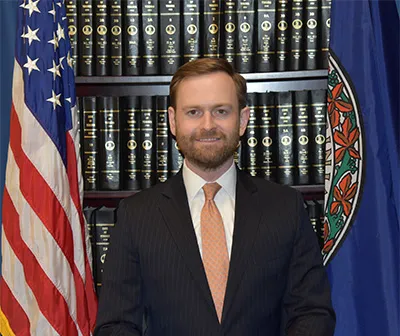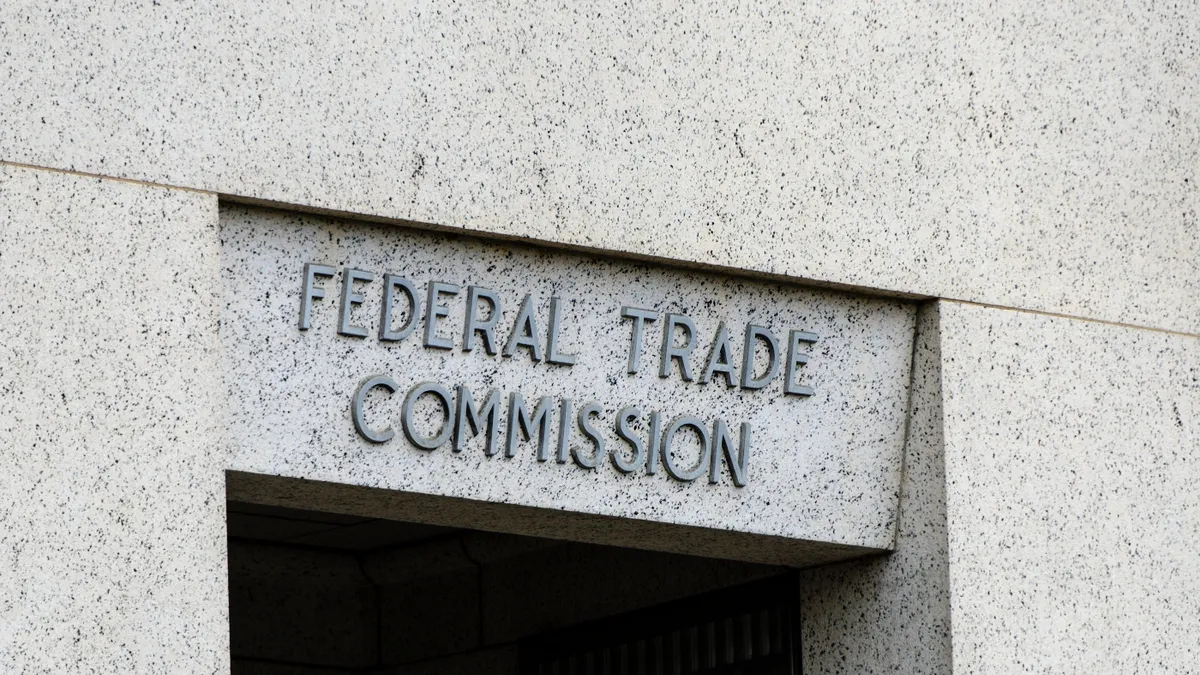The Federal Trade Commission hasn’t had a full roster of commissioners since late 2022, when Republican Commissioner Noah Phillips resigned to become co-lead of the antitrust practice at a private firm. The other Republican commissioner, Christine Wilson, left in early 2023, also joining an antitrust practice at a private firm. The resignations left the agency in one party’s hands for a year, with Lina Khan as chair and Rebecca Kelly Slaughter and Alvaro Bedoya as the remaining commissioners.

That changed this week with the swearing in of Andrew Ferguson, a Republican former Virginia solicitor general, on April 2, and of Melissa Holyoak, a Republican former Utah solicitor general, last month.
“We are pleased to share that the Federal Trade Commission is once again at full strength with a five-member Commission,” the agency tweeted on X April 3.
Even so, in-house counsel can expect more of the same from a policy perspective.
Ferguson’s Senate confirmation was held up for months by Sen. Josh Hawley (R-Mo.), who wanted to see evidence of his bonafides as an antitrust defender, which Ferguson delivered.
“I was pleased to hear [Ferguson] express strong support for robust antitrust enforcement,” Hawley said last month in lifting his objection. “He pledged to be a firm advocate for prioritizing working people and their rights over corporate interests and monopolies.”

Having another robust antitrust enforcer on the commission means the FTC’s aggressive approach to mergers and competition will likely continue with his input.
For the last three years, the agency has given heightened scrutiny to mergers and business practices on the basis of not just consumer harm but also labor impacts, director conflicts and information sharing, among other things.
When Wilson resigned, she called the agency’s approach in this and other areas overreach.
“My fundamental concern with [Chair Lina Khan’s] leadership of the commission pertains to her willful disregard of congressionally imposed limits on agency jurisdiction, her defiance of legal precedent, and her abuse of power to achieve desired outcomes,” Wilson wrote in an op ed published in The Wall Street Journal announcing her resignation.
In all sorts of ways, she complained, the agency was going too far and seeing anti-competitive behavior where it hadn’t seen it before. She cited a policy statement the FTC released at the end of 2022, to which she dissented, that said the agency will look at company actions that appear to be problematic even if they don’t technically violate antitrust law.
That statement, she said, “resembles the work of an academic or a think tank fellow who dreams of banning unpopular conduct and remaking the economy.”
As if making Wilson’s point for her, Khan, in an interview with Jon Stewart of the Daily Show April 2, said the agency looks for anti-competitive behavior before it looks at the metrics that would show whether its behavior is having market impacts.
“We really focus on how companies are behaving,” she told the comedian. “Are they behaving in ways that suggest they can harm their customers, or suppliers, or their workers and get away with it? That type of too-big-to-care approach is really what ends up signaling that a company has monopoly power.”
Wilson also took issue with the agency’s proposed ban on non-compete agreements, which she said breaks with precedent, doesn’t have sufficient data to show agreements are bad for competition and is vulnerable to legal challenge because it tries to stretch the reach of Section 5 of the FTC Act, which covers unfair competition.
“I am dubious that three unelected technocrats [the three Democratic commission members] have somehow hit upon the right way to think about non-competes, and that all the preceding legal minds to examine this issue have gotten it wrong,” she said.
The highest profile action the agency took while it was being led by the three commissioners was probably the antitrust case against Amazon, which the agency accused of using monopolistic power to charge consumers unnecessarily high prices, degrade their shopping experience and hurt the small businesses that rely on it to sell products.
But the agency made a number of other sweeping moves, including its codification, in partnership with the Department of Justice, of merger review guidelines that critics said would make it more burdensome and expensive for companies to meet, even if the chance of most companies’ deals going into second review is no greater than before.
“They are taking the vast number of transactions that don’t create any antitrust issues whatsoever and imposing significant costs on those parties,” former FTC attorney Amanda Wait said at the time. Wait is a partner at DLA Piper and a former partner at Norton Rose Fulbright.
By having a full commission, the back and forth among commissioners will no doubt increase, slowing down the pace of decisions and opening the door for more compromise. But in the end, the policy direction isn’t likely to change.











